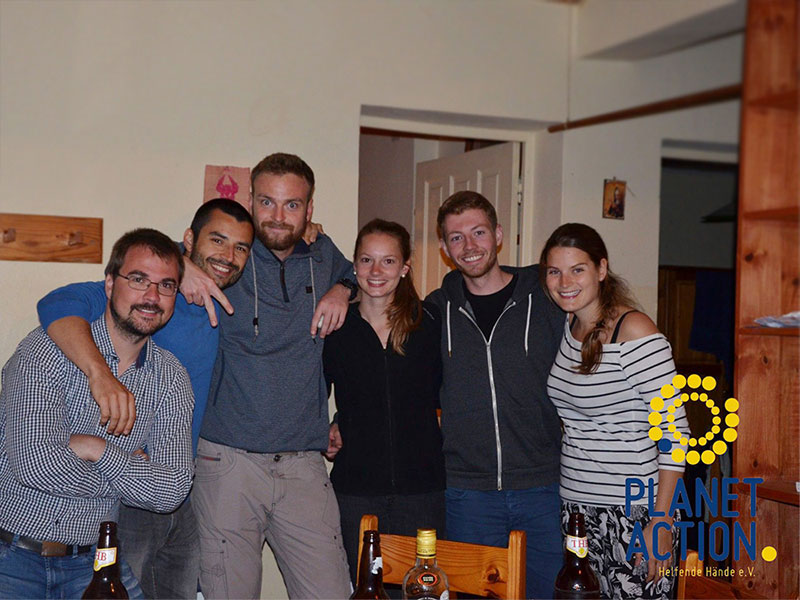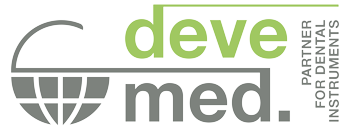WE
help
people
#
social projects
Instrument donation PLANET ACTION 2016
Travel Report Madagascar 2016

In the course of our dental training, there was one or the other information event about various clinical placements abroad. There, students and doctors reported on their adventurous journeys and experiences with dental aid in Third World countries. Our interest was aroused.
In March 2016, we received a circular email from the teaching coordinator, Dr. Elke Wischmeyer, in which the Planet Action project (not yet a registered association at that time) was presented: students and dentists were being sought who wanted to continue their work on behalf of the organisation in the summer of 2016 and start a voluntary assignment. This was the starting signal for our trip to Madagascar.
In a first meeting with Anja Stengele and Nina Sickenberger as well as Dominik Biehler and Matthias Schmitt, they reported on their past mission on the fourth largest island in the world. This is how our group consisting of: Amelie Seidenspinner and Rebecca Herbstritt (9th semester) as well as Jakob Ulrich and Georgi Doytchinov (8th semester). What sounded particularly appealing was the idea of organising the trip on our own, far away from the usual working conditions and using the simplest of means.
We hoped for a unique and one-off aid mission that was different from the stories told at the information events by higher semesters.
Now the preparations began; there was a lot to organise: The main focus was on finding dentists who were willing to put their precious holidays into a dental aid mission and to look after us. We wrote to numerous dental companies and asked for donations in kind. Furthermore, we urgently needed financial means. In the course of the organisational preparations, the Planet Action project also developed further and became a registered non-profit association. This made it easier for us to acquire donations, as we could now issue donation receipts. We were also noticed in the local press and in dental journals. The team was finally completed by former students of the University of Würzburg and now dentists Clemens Otto, who would accompany us for the first half of the trip, and Dr Thomas Stumpf, who wanted to take over the second half.
We set our itinerary with the cities of Antananarivo, Fianarantsoa and Fort Dauphin; oriented on the past mission of Planet Action e.V. and contacted the local aid projects. Later it will turn out that Madagascar has its own laws and spontaneity is in high demand when it comes to changing plans. On 01.08.16, the plane finally took off. After a relaxed 14-hour flight and two transfers, we finally had Madagascan soil under our feet and were immediately confronted with our first challenge: of ten checked-in suitcases, six were missing! Two volunteers from Manda were waiting for us, who welcomed us warmly and took us to our first accommodation.
We drove through the capital Antananarivo at dusk and were flashed: Poverty far and wide, ancient cars that certainly did not meet any emission standards and also had no seat belts, smog everywhere, food stalls along the roadsides lined with playing children running around barefoot scantily clad; people searching in rubbish bins, campfires to protect from the nightly cold. Overall, the first impression was surreal and, for the moment, unrealistic. Our little bus stopped at the road after an hour’s drive and we walked to our first stop, Manda. The next morning we started our preparations. On an adventurous taxi brousse ride, which seats at least 20 people on 12 seats, we drove into town and paid a visit to the pharmacy. We also bought a pressure cooker for sterilisation at a household shop to achieve the best possible hygienic standard.
ONG Manda is a street children’s project of the Berlin-based association “Zaza Faly e.V.” and is located in the Tsiadana district of Antananarivo near the university. Here, children between the ages of 4 and 14 are taken off the streets and receive schooling, divided into classes according to their age, as well as warm meals and access to sanitary facilities. In addition, the facility has a sickroom and a nurse working there. Here we set up our mobile treatment station. We treated standing up on back-unfriendly school benches and formed teams of two consisting of the students, so that the dentist was always available to help us with questions. We went from class to class and showed the children how to brush their teeth properly with the help of a large toothbrushing model. Afterwards, they could practice this directly under our supervision. We also distributed toothbrushes and toothpastes. We screened the children and finally treated them. Where we could, we made fillings with glass ionomer cements, but in the case of badly damaged teeth, unfortunately, the only option was extraction. With the younger children, our patience was in demand, as well as the interpreting skills of Tiavn’R., a Manda employee. She spoke perfect German, which made our work a lot easier. Nevertheless, one or the other tear flowed and some children were so scared that they refused the treatment completely. We were also not spared complications such as MAVs. Here the dentist was allowed to prove his skills and cover them. The longer we treated, the less we let ourselves be put off and pulled out one tooth after the other.
All too soon, unfortunately, the time had come when we had to say goodbye to the sweet children and set off for the next stop. We drove ten hours in a mini bus to Fianarantsoa, 411km away. The road was tarred most of the time, but with huge potholes at regular intervals. The last 60km took us two hours, as here the road consisted only of packed hilly clay. Already in the dark, we were warmly welcomed by the staff of Ambalakilonga in Fianarantsoa. “Ambalakilonga”, which can be translated into German as “City of Boys”, is an Italian-run organisation that takes young people off the streets to enable them to get an education or to study. The boys also have the opportunity to get hot meals, access to running water and sanitary facilities, play together or even live there. We were also allowed to move into a flat for five in the volunteer house. The main person in charge of the organisation, Rosario Volpi, had cooked pasta alla Siciliana for us as a welcome. A welcome change from the rice we had eaten every day for lunch and dinner in Tana. Here, too, we soon developed a regular daily routine. We set up camp in the sick room there. Clemens Otto, our dentist, looked after us in Fiana for the first week, then he had to fly home again. He was replaced by Dr. Thomas Stumpf, who helped us for the rest of the time. First we screened and treated the thirty orphan boys who had found a new home in Ambalakilonga. From Germany, together with Christina Caruso, Rosario’s right-hand man, we organised a notice announcing our arrival and the free dental care we would be providing to the people living in the area. This offer was gratefully accepted and a list of patients’ names quickly filled up. The big rush can be explained by the fact that a visit to the dentist is very expensive here and thus only reserved for the few wealthy Madagascans. We noticed that the boys in Ambalakilonga had much better oral hygiene and health, which was certainly also due to the access to running clean water and sanitary facilities. At least in the morning we could observe the boys brushing their teeth. During a prophylaxis demonstration, which we held in the family circle at the evening meetings in their chapel, we were able to close existing gaps in the knowledge about oral hygiene and prophylaxis, such as the urgency to brush the teeth also in the evening before going to bed. As a result, we had to perform only a few extractions and were able to preserve many decayed teeth with fillings. With the “Village people”, on the other hand, we soon realised that teeth could only very rarely be saved with fillings. Much more often we resorted to extraction forceps. The desolate condition of the teeth gave us an idea of the great pain the people had gone through. Root remnants and even severely destroyed teeth had to give way to our forceps. It was not uncommon for patients to have fistulas, granulomas, cysts and abscesses. Interesting anomalies, which until now had only been seen in pictures in lectures, were right in front of our eyes, such as revolver-like bite positions, root peculiarities, such as a three-rooted upper premolar (5s) or lower molar (6s), calculus, not only on the lower front, but also on the vestibular and occlusal surface of the upper molars. To overcome the language barrier, the volunteers from Ambalakilonga helped us and translated from English into Malagasy. We got involved in the boys’ daily routine and had lunch together and also attended the meetings that took place every evening. Here we sang and prayed together and the boys could talk about any problems and worries in the group or in private with Rosario. We were impressed by the dedication with which the boys worked and the family atmosphere that was created. Therefore, we decided to donate the rest of our donations to the Ambalakilonga project. Unfortunately, we had to cancel the planned third stop Fort Dauphin, because the actual road could not be used for safety reasons and the alternative route would have taken three days of driving. We decided to use the time to continue doing good in Fianarantsoa. There was enough work: people were waiting outside the gates from 5.00 a.m. onwards.
On our free days, however, we did not miss the opportunity to explore the country. We visited the national parks Andasibe, Ranomafana and Isalo. Here we admired the endemic flora and fauna, especially the lemurs, such as the Goodman Mouse Maki, a mouse-sized lemur. We were also able to enjoy the Indian Ocean and the Madagascan sun for a few days on the west coast in Mahajanga. Grateful for the extraordinary experiences and adventures we had on the island, we were looking forward to returning home.
Thanks to Planet Action e.V. !
Veloma!!!!
Amelie Seidenspinner, Rebecca Herbstritt, Jakob Ulrich, Georgi Doytchinov
